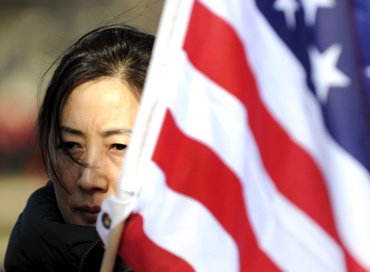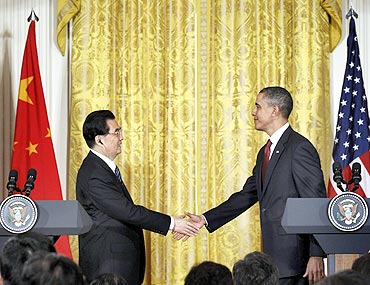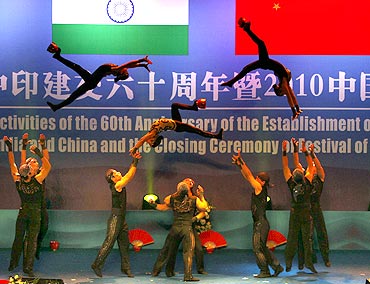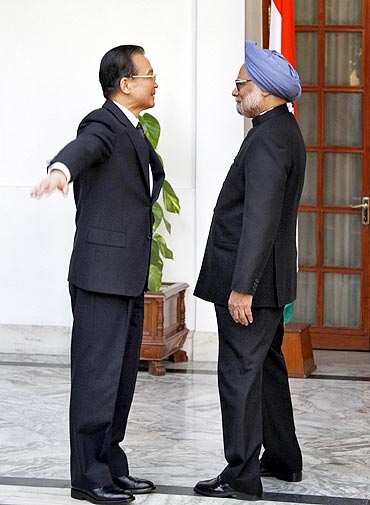
Observing that China has been anxiously watching the rise of the relationship between United States and India, a former top US diplomat believes New Delhi doesn't want to be caught in this Sino-US game at the global level.
"China has been watching very carefully the rise of the US-India relationship, including on the defence side," said Karl F Inderfurth, the former assistant secretary of state for South Asian affairs.

Participating in a discussion on 'Unlocking the full potential of US-India relationship' at the Centre for Strategic and International Studies, a Washington-based think-tank, Inderfurth said, "We do more manoeuvres now with the Indian army than they do with any other country. We're looking to sell India 126 jet fighters".
"Some of them are wondering -- and if you read the Chinese journals, they are wondering if this is part of a containment strategy of -- the Obama strategy of China," Inderfurth said, referring to recent reports in this regard in the Chinese media.

"India does not want to be caught up in a US-China game. India wants good relations with China because they know that they are neighbours, and they know that they're both nuclear-weapons states, and they want to trade. They don't want to get caught up in a machination of US-China. So they're very concerned about being caught up in that. And so they're going to maintain their distance," he said.

"India has also has seen the rising, the assertiveness of China in the last year. So they're quite happy to continue building on the relationship with the United States," he noted.
"But the key to this is not to get into the mindset where it is two against the other, ganging up on the rest. Somehow our governments have to find a way to deal with each of the relationships on their own merits, and not try to out-strategize or manoeuvre the other," Inderfurth observed.